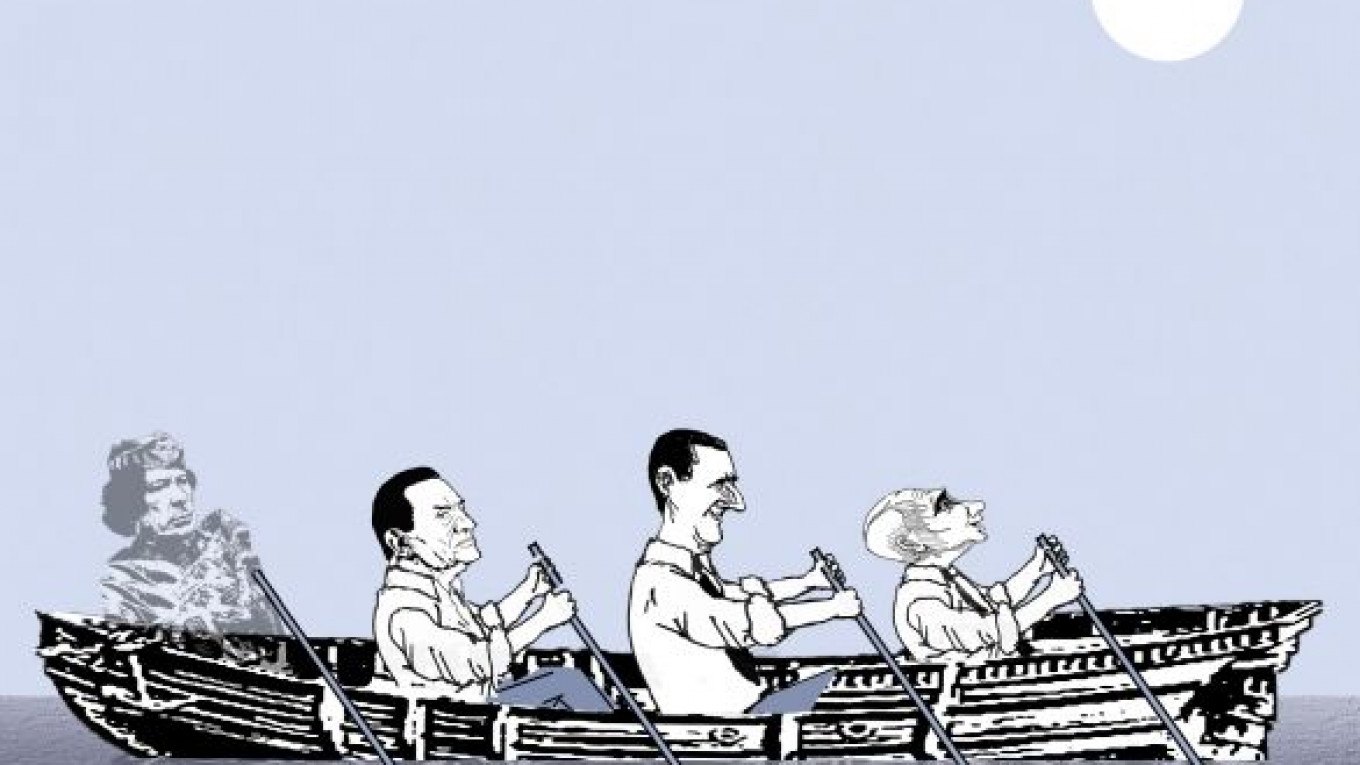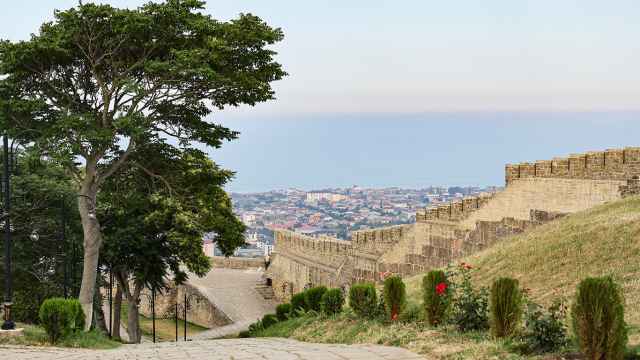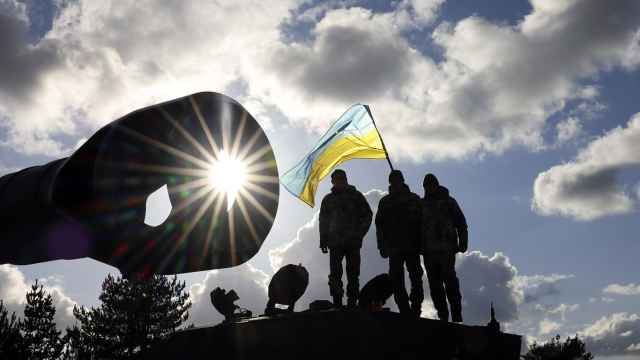Political analysts naturally attempted to predict Russia's foreign policy for the next six years based on the results of President Vladimir Putin's brief visits to Germany and France last week. They had little cause to be optimistic in their predictions. Putin ended up having to discuss the massacre in the Syrian village of Houla and explain the reasons for Moscow's continued support of Syrian President Bashar Assad.
Ever since the outbreak of the Syrian crisis 14 months ago, the West has been trying to find a rational reason for why Moscow has supported Assad. The response from the Kremlin and Foreign Ministry has been that the rebels, supposedly made up of terrorists and foreign agents, leveled the village of Houla to provoke or discredit the Assad regime. But this explanation doesn't hold water because the village was leveled by heavy artillery and tanks, which the rebels do not have. The rebels are fighting government forces with machine guns, rifles and, in some cases, roadside bombs.
At the same time, Putin explained that the weapons Moscow has delivered to Syria could not have been used against civilians. Perhaps Putin was referring to Russia's Bastion missile system for coastline defense or long-range anti-aircraft missile systems. After all, the rebels not only do not have tanks, they also do not have ships or aircraft. But the United States and its allies have plenty of military ships and aircraft, so the weapons Putin was alluding to may provide Syria additional protection in the event of an air or sea attack by Western forces or its allies.
Western analysts are constantly trying to find a rational explanation for Russian policy toward the Assad regime. Why, they ask, is the Kremlin risking its international reputation to support a bloody dictator?
The most common explanation in the West is that a pro-Assad policy is the best way for Russia to preserve its economic, military and political interests in the country, including its naval port in Tartus, billions of dollars in weapons sales, heavy investments in the energy sector and a Russian outpost in the Middle East to counter the heavy U.S. presence in the region.
But these arguments fail for the simple reason that Assad's days in power are undoubtedly numbered. If an anti-Assad regime comes to power, it will not forget Moscow's strong support over the decades for both Bashar Assad and his father, Hafez. As a result, there is a high probability that a new regime would cancel its arms deals with Moscow, shut down Russia's naval base and find Western replacements for its energy projects. This is exactly what happened in Iraq and Libya. So why does the Kremlin continue to stubbornly defend Assad?
The answer, it would seem, lies in the field of psychology. Putin identifies with Assad, former Libyan President Moammar Gadhafi and former Egyptian President Hosni Mubarak. He is firmly convinced that democracy, the rule of law and human rights are all little more than contrivances that allow the West to control weaker nations. This is the basic tenet behind 19th-century realpolitik, which Putin fully subscribes to. He believes that the West's foreign policy is driven by a desire to establish de facto colonies under the flowery pretext of spreading democracy and protecting human rights.
This also explains why Putin believes that the street protests in Moscow are a creation of hostile Western intelligence agencies and that the protests in Syria, Libya and Egypt were engineered by subversive forces funded by the West.
Putin believes that there are no real democracies in the West in which people participate in the decision-making process. Western rulers can get away with this, he believes, only because they have sophisticated PR techniques that pull the wool over their naïve citizens' eyes, convincing them that they are living in a democracy and that their rulers' expansionist foreign policies are spreading freedom to other nations as well.
Just like Mubarak, Gadhafi and Assad, Putin has built a sham democracy in which fake elections give only the pretense of reflecting the people's will, and the courts provide only a semblance of the rule of law and justice. Showing solidarity with the world's leading dictators, Putin views any attempt to overthrow an authoritarian regime as a clear violation of the rules of the game. He understands that he must fight to the end against the protest movement because the moment he lets down his guard, he could find himself in the same position as Mubarak, whom those ungrateful Egyptians sentenced to life in prison after 30 years in power.
All of this makes it vital for Putin to somehow convert the world community to his understanding of sovereignty — that any ruler has the right to deal with his people and his country's resources in whatever way he sees fit.
Alexander Golts is deputy editor of the online newspaper Yezhednevny Zhurnal.
A Message from The Moscow Times:
Dear readers,
We are facing unprecedented challenges. Russia's Prosecutor General's Office has designated The Moscow Times as an "undesirable" organization, criminalizing our work and putting our staff at risk of prosecution. This follows our earlier unjust labeling as a "foreign agent."
These actions are direct attempts to silence independent journalism in Russia. The authorities claim our work "discredits the decisions of the Russian leadership." We see things differently: we strive to provide accurate, unbiased reporting on Russia.
We, the journalists of The Moscow Times, refuse to be silenced. But to continue our work, we need your help.
Your support, no matter how small, makes a world of difference. If you can, please support us monthly starting from just $2. It's quick to set up, and every contribution makes a significant impact.
By supporting The Moscow Times, you're defending open, independent journalism in the face of repression. Thank you for standing with us.
Remind me later.







